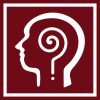Research on the management and the outcome of treatment of medically unexplained symptoms is very limited. Development of simple but effective techniques for treatment and demonstration of their effectiveness when applied in primary health care are needed.
A randomized controlled trial was carried out with follow-up assessments at 3 months after baseline assessments using the Short Explanatory Model Interview (SEMI), General Health Questionnaire (GHQ-30), Bradford Somatic Inventory (BSI) and patient satisfaction on a visual analogue scale. The study was carried out in a general out-patient clinic in Sri Lanka.
The intervention group received six, 30 min sessions based on the principles of cognitive behavioral therapy over a period of 3 months. The control group received standard clinical care. Eighty patients out of the 110 patients referred, were eligible. Sixty-eight were randomly allocated equally to the control and treatment groups. All 34 in the treatment group accepted the treatment offer and 22 completed between three and six sessions. At 3 months, 24 in the treatment and 21 in the control group completed follow-up assessments.
Intervention based on cognitive behavioral therapy is feasible and acceptable to patients with medically unexplained symptoms from a general out-patients clinic in Sri Lanka. It had a significant effective in reducing symptoms, visits and distress, and in increasing patient satisfaction.
